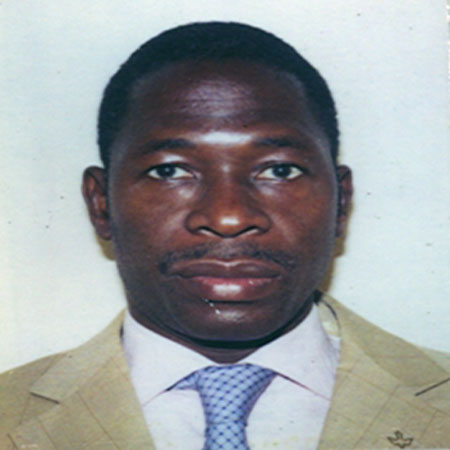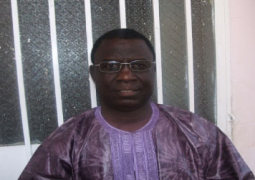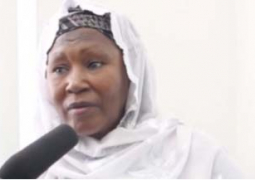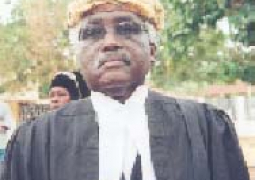
The nine-count indictment trial against William John Joof, ex-Gambian diplomat and at one time permanent secretary at the Ministry of Foreign Affairs commenced yesterday with the testimonies of two prosecution witnesses, both police officers.
Mr. Joof, who is standing trial at the Banjul Magistrates' Court on charges of official corruption, obtaining goods by false pretence, stealing, conspiracy to commit felony, goods used, and four counts of abuse of office, had since denied the charges.
Testifying earlier, the first prosecution witness, Dello Bah a police officer attached to the fraud and commercial unit of the Gambia Police Force, told the court that he recognised the accused person, adding that the accused was brought to their office for investigation.
"On 12th October 2007, while on duty, my boss Officer Commanding Fraud and Commercial Unit, Chief Superintendent Biran Salieu Jobe, asked me to obtain a voluntary statement from the accused person, which I did in the presence of an independent witness, one Ndemeh Nying.
I recorded the particulars, and I read the cautionary wording to him in English, which he understood. I also read the charges of abuse of office to him, and he denied it," Bah told the court.
Asked by the Deputy Director of Public Prosecutions, Mikailu Abdullahi, whether he could recognise the said statement, the witness replied in the affirmative. The prosecution subsequently applied to tender the said statement as a prosecution exhibit. The voluntary statement was admitted and marked as an exhibit.
In his testimony, the Officer Commanding Fraud and Commercial Unit of the Gambia Police Force, Chief Superintendent Biran Salieu Jobe told the court that he too recognised the accused person. He said on 11th October 2007, he was instructed by the former Crime Management Coordinator (CMC) Burama Dibba, to obtain a cautionary statement from the accused person.
He said after he got the instruction from former CMC Dibba, he went back to his office and informed the accused that he was to obtain the cautionary statement from him, which he said the accused accepted.
OC Jobe further adduced that he cautioned the accused person in English, in the presence of an independent witness, adding that the accused wrote his own statement and signed, the independent witness signed and he (Biran Jobe) also signed.
The statement was shown to the witness, and he recognised it.
The prosecutor applied to tender the said statement as an exhibit, but this was objected to by the defence counsel, Lamin Camara.
Counsel Camara submitted that he was objecting to the admissibility of the said statement on the grounds that this cautionary statement was not taken in accordance with section 31 subsection 2 of the Evidence Act.
He submitted that the witness in his introductory testimony told the court that on 11th October 2007, he was instructed to obtain the cautionary statement from the accused person.
Counsel said the witness proceeded to tell the court what he did to obtain the said statement, adding that the witness testified and said that the statement was taken in the presence of an independent witness.
"It is clear from this statement that an independent witness was not present when this statement was obtained," he submitted.
"The accused person consistently dated on the statement 11th October 2007 and, on the other hand, the independent witness consistently dated on the statement 12th October 2007. Therefore, it cannot be said that the statement was taken in the presence of an independent witness," Camara further submitted, arguing that the statement was confessionary in nature, and is not admissible.
He cited section 31 (2) of the Evidence Act, adding that it was clear that there was no independent witness at the time this statement was being obtained, and urged the court to reject it.
In response, the DDPP said the statement is admissible, submitting that all the procedures that are laid under the Evidence Act have all been complied with in taking the statement.
From the objection raised by the defence, there are four to five issues that call for determination. The first issue is whether section 31 sub section 2 of the Evidence Act really applies in this case. The second issue is whether the statement is a confession, the third issue is if a confession under section 33 of the Evidence Act whether it can breath, and the last issue is whether it is relevant under section 3 of the Evidence Act.
At this stage, the case was adjourned to 22nd September 2010 for the DDPP to continue his reply to the defence submission.
Read Other Articles In Article (Archive)
Gambia's U-17 Early Exit, The Way Forward
Nov 16, 2009, 3:55 PM




